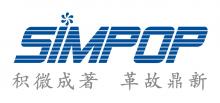Program Areas
The technical program of the Fluidization XVI will be divided into the following areas:
- Fundamentals of Fluidization
- Modeling and Simulation
- Fluidized Bed Applications
- Fluidization in Nature
- Fluidization Poster Session
Fundamentals of Fluidization
The fundamental understanding of fluidized beds is far from complete, although fluidization technology has been industrially displayed for a long period. Better understanding of fundamental issues will result in better design, scale-up and operation of fluidized beds. The session focuses on fundamental studies of fluidization and fluid-particle systems. Articles presenting research related to experimentally, analytically, and computationally fundamental studies are invited, such as studies related to the development, modification and application of any novel measurement techniques in fluidization systems, hydrodynamics of reactive and non-reactive systems, mixing and segregation, fluidization of nanoparticles and fluidized bed design.
Chairs:
- Chi-Hwa Wang, National University of Singapore
- Raymond Lau, Nanyang Technological University
Modeling and Simulation
Flow-particle flow in fluidized beds is notoriously difficult to understand, primarily due to the existence of multiple spatiotemporal scales and the strong coupling of transport characteristics between different scales. In recent decades, modeling and simulation has become an effective and important tool in studying the hydrodynamics, heat and mass transfer as well as chemical reactions occurred in fluidized beds at different spatiotemporal scales. Contributions focusing on modeling and simulation of fluidization are sought, topics covered in this session include, but are not limited to, studies of fluidization behaviors using direct numerical simulations, Eulerian-Lagrangian methods (such as CFD-DEM method, coarse-grained CFD-DEM methods, DDPM and MP_PIC method), continuum models and phenomenological models.
Chairs:
- Junwu Wang, Institute of Process Engineering, CAS
- Yunru Bai, Chinese Society of Particuology

Fluidized Bed Applications
Fluidized bed applications are best represented by its massive success in oil refining and coal utilization processes. Due to its excellent mass and heat transfer characteristics, continuous powder handling ability and high gas and solids throughput, the possibility of other applications of fluidized beds, established or potential, are boundless. In this session contributions focusing on the classical and novel applications of fluidization technology in any field are invited, topics covered include, but are not limited to, fluid catalytic cracking, combustion, gasification and pyrolysis of coal and/or biomass, chemical looping, polymerization, granulation, pharmaceutical and food applications, environmental, mineral and metallurgical processes.
Chairs:
- Atsushi Tsutsumi, The University of Tokyo
- Jun Oshitani, Okayama University of Science

Fluidization in Nature
Geophysical mass flows, including avalanches of debris, mud and snow, and pyroclastic flows from volcanoes, are amongst the most spectacular and dangerous natural phenomena known to humankind. Predicting the damage potential of these events to life and infrastructure is one of the foremost tasks for geoscientists and hazard decision makers worldwide. Common to all these natural mass flow phenomena is their nature as granular-fluid flows, therefore, in this session, studies related to geophysical mass flows are invited. Especially, studies with the following topics are highly welcomed: the fluid-particle coupling processes in turbulent and non-turbulent suspensions; the generalization of currently phenomenological rheological models for particle-fluid flows to account for natural ranges in particle sizes, fluid viscosity and spatiotemporal scales; and the robust validation of simplified numerical models which allow their application to large-scale natural systems with confidence.
Chairs:
- Clive Davies, Massey University
- Wei Ge, Institute of Process Engineering, CAS

Fluidization Poster Session
This session will cover topics in all aspects of fluidization and fluid-particle systems. Authors who prefer to present their study as a poster are invited to submit their contributions to this Poster Session.
Chairs:
- Jia Wei Chew, Nanyang Technological University





